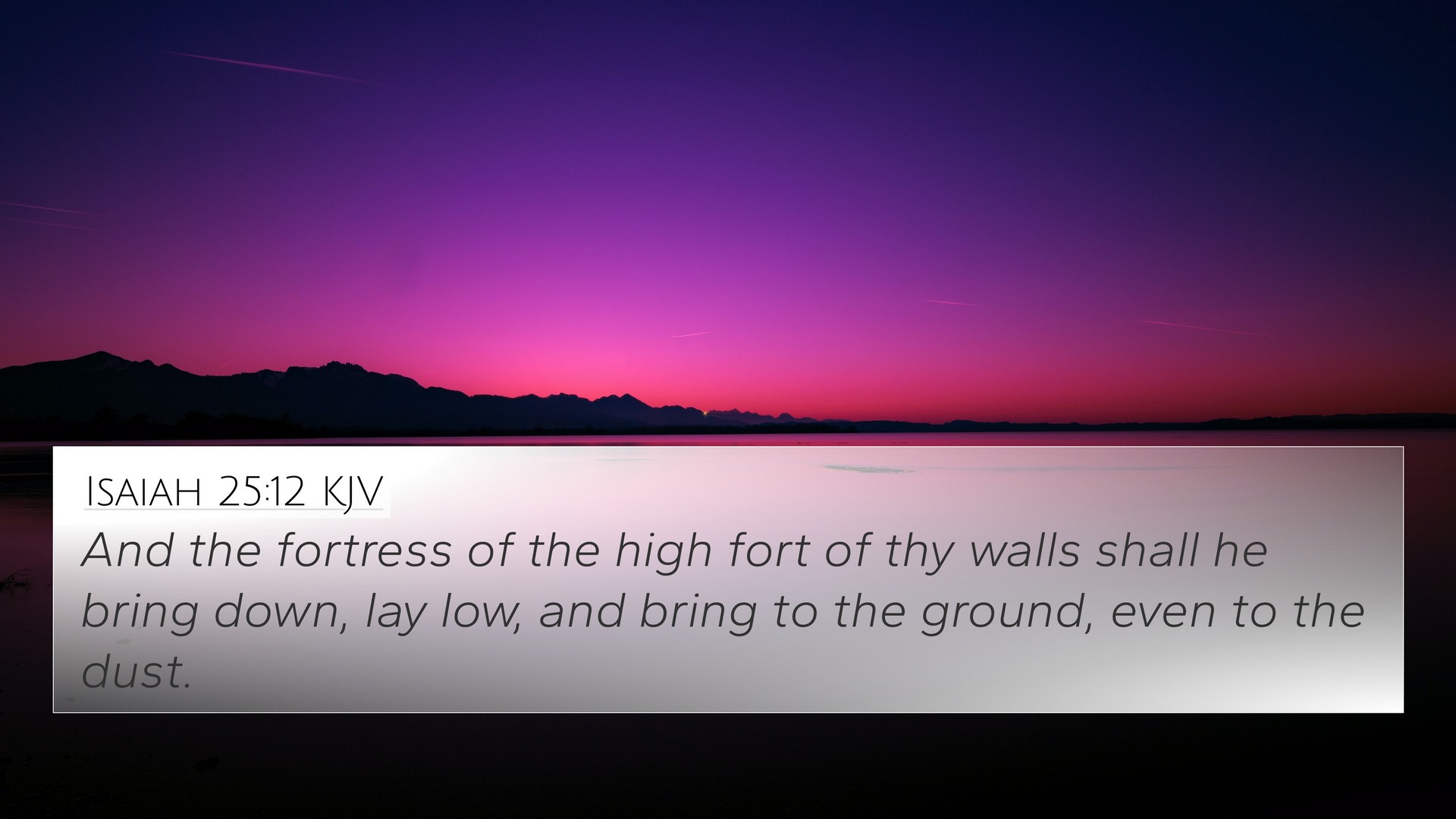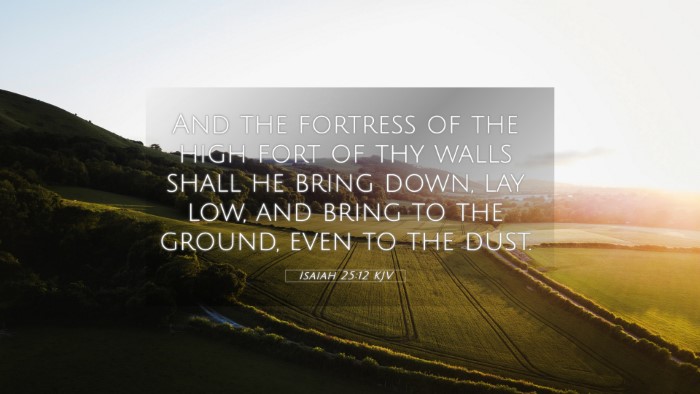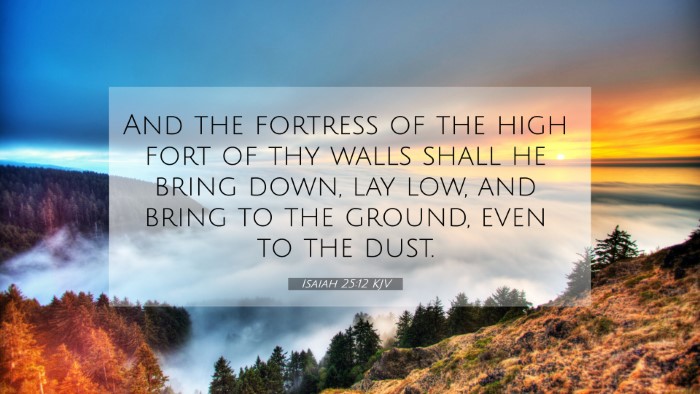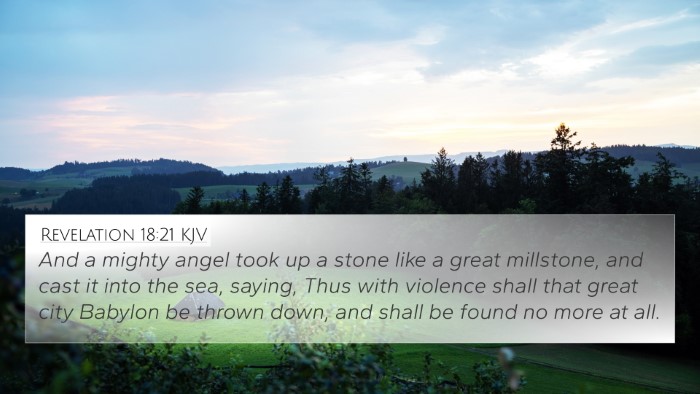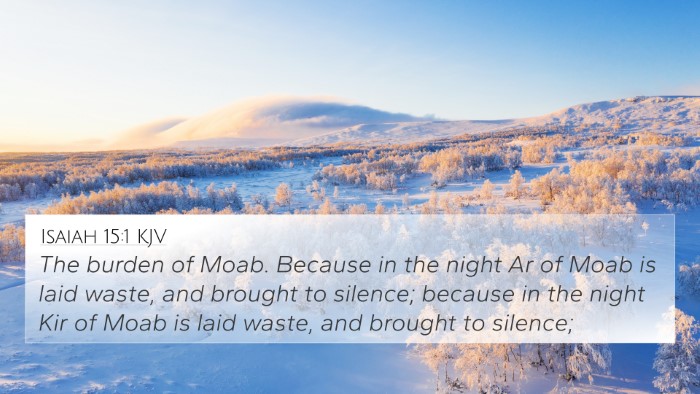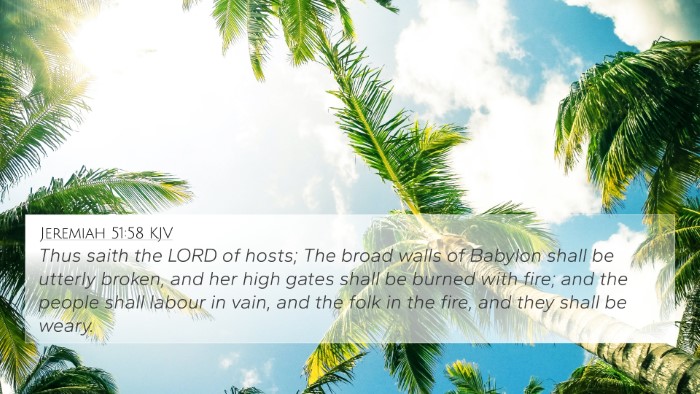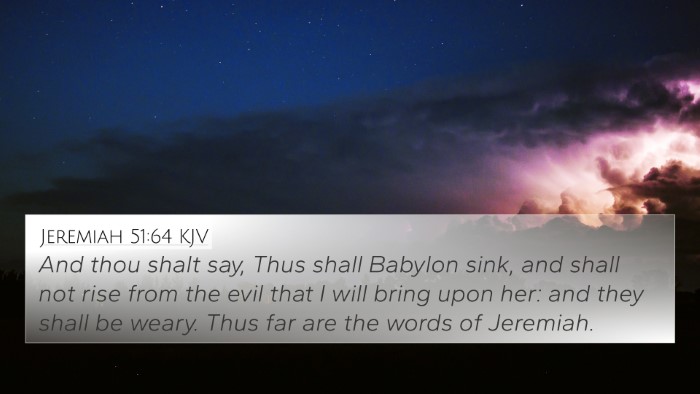Understanding Isaiah 25:12
Verse Context: Isaiah 25:12 states, "And the fortress of the high fort of thy walls shall he bring down, lay low, and bring to the ground, even to the dust." This prophetic verse delivers a significant message regarding the downfall of prideful human constructs and the triumph of God's eternal justice.
Verse Meaning Summary
This verse speaks to the absolute sovereignty of God over the nations and their defensive measures. It highlights that no matter how fortified and strong a place might be, it cannot withstand divine judgment. The imagery of walls being brought down to dust serves as a potent reminder of the transient nature of human power compared to the permanence of God's will.
Insights from Commentaries
- Matthew Henry: Henry emphasizes that God's justice inevitably prevails over human arrogance. He interprets the fallen fortress metaphorically, representing the pride of the city and its inhabitants, who believe they can stand against divine authority.
- Albert Barnes: Barnes discusses the military and spiritual implications of this verse, asserting that it foreshadows the inevitable defeat of those who oppose God. He links this defeat to the broader theme of God's deliverance for His people.
- Adam Clarke: Clarke elucidates on the historical context, suggesting that the fall of the great empires is prefigured in this verse. He also calls attention to the ultimate restoration promised to the faithful, contrasting the fates of the proud and the humble.
Bible Cross References
- Isaiah 2:12: "For the day of the Lord of hosts shall be upon everyone that is proud and lofty." This verse connects to the theme of judgment against pride.
- Isaiah 26:5: "For he bringeth down them that dwell on high." This reflects the consistent biblical theme of God humbling the exalted.
- Psalm 37:10: "For yet a little while, and the wicked shall not be: yea, thou shalt diligently consider his place, and it shall not be." Here, we see a linkage to the transient nature of the wicked's power.
- Jeremiah 51:58: "Thus saith the Lord of hosts; The broad walls of Babylon shall be utterly broken." This resonates with the imagery of destruction depicted in Isaiah 25:12.
- Ezekiel 26:4: "And they shall destroy the walls of Tyrus." This shows a parallel to divine retribution against fortified cities opposing God’s will.
- Matthew 23:12: "And whosoever shall exalt himself shall be abased." This New Testament verse mirrors the principle of humbling the proud in Isaiah 25:12.
- Revelation 18:21: "And a mighty angel took up a stone like a great millstone, and cast it into the sea." This can be seen as a prophetic echo of total destruction in the face of divine judgment.
- Lamentations 2:8: "The Lord hath purposed to destroy the wall of the daughter of Zion." A direct connection reflecting on God's judgment against nations that defy Him.
- Proverbs 16:18: "Pride goeth before destruction." This succinctly summarizes the warnings present in Isaiah 25:12.
- Isaiah 10:33-34: "Behold, the Lord, the Lord of hosts, shall lop the boughs with terror." This passage further underscores God's action against the lofty and proud.
Connections between Bible Verses
The theme of God's sovereignty over human affairs and the fall of the proud is a thread woven throughout both the Old and New Testaments. This inter-Biblical dialogue encourages the reader to explore the connections between prosperous nations and their eventual consequences when they stray from divine statutes.
How to Use Bible Cross-References
Utilizing tools for Bible cross-referencing is essential for deeper scriptural study. A Bible concordance or a Bible cross-reference guide can aid in identifying connections between verses like Isaiah 25:12 and similar thematic elements throughout scripture.
Conclusion
In summary, Isaiah 25:12 serves as a profound reminder of God's omnipotence. The verse's message is universal and timeless, reaffirming the futility of human pride against divine authority. Through careful analysis and cross-referencing of scriptures, we deepen our understanding of biblical themes and the connections that guide spiritual insight.
